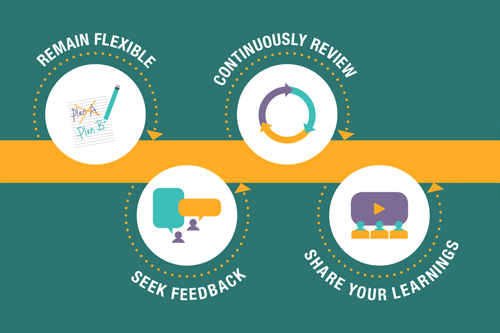Post Graduate Diploma in Monitoring and evaluation
- October 24, 2020
- Posted by: humanitarianweb
- Categories:

Post Graduate Diploma in Monitoring and evaluation
An effective state is essential to achieving sustainable socioeconomic development. With the advent of globalization, there are growing pressures on governments and organizations around the world to be more responsive to the demands of internal and external stakeholders for good governance, accountability and transparency, greater development effectiveness, and delivery of tangible results.
Governments, parliaments, citizens, the private sector, nongovernmental organizations, civil society, international organizations, and donors are among the stakeholders interested in better performance. As demands for greater accountability and real results have increased, there is an attendant need for enhanced result-based monitoring and evaluation of policies, programs, and projects.
Monitoring and Evaluation is increasingly recognized as the cornerstone for effective program management and is critical for organizational sustainability. A continuously increasing need for suitably skilled monitoring and evaluation project managers has been identified as a priority area by various stakeholders active in different sectors and industries; e. g globally- funded sponsorships often require evidence of effective monitoring and evaluation systems prior to awarding funds.
Course Objectives
By the end of this course the participants should be able to:
- Apply concepts, principles, processes and framework for monitoring and evaluation systems in development programmes;
- Use result-based tools for programme planning;
- Design and develop M & E systems;
- Design and conduct an evaluation
- Formulate result- and change-oriented indicators for monitoring and evaluation
- Use M&E tools for qualitative and quantitative data analysis
Course Content
Introduction to M&E Principles and Concepts
- Understand M&E basic principles
- Apply principles of results based management
- Use practical considerations and key steps in developing M&E systems
Program Logic models and Theory of change
- Describing and developing program Logic models
- Theory of change
- Application of logic models and TOC in developing sound M&E systems
Designing program monitoring systems
- Deciding on key aspects of the program to monitor
- Identifying data sources
- Designing sound data collection and collation tools
- Developing standard operating procedures (SOPs) for managing data
Program Databases
- Types of Databases
- Key considerations on designing and selecting a suitable database for a program
- Common pitfalls in choice and use of databases
Managing data quality
- Data quality principles and rationale
- Assessing risks to data quality
- Tools for managing data quality
- Ethical considerations in dealing with data
Routine Data Quality Assessments
- What are Routine data quality assessments (RDQAs)
- Tools and processes for conducting RDQAs
- Communicating and using results of RDQAs
Designing evaluations for field-based programs
- An appropriate evaluation design
- Evaluation principles and approaches for field-based programs
- Identifying evaluation questions and developing a learning agenda
- Selecting Collecting evaluation data
Analyzing and reporting data for decision making
- Developing a data analysis strategy
- Selecting data analysis methods
- Presenting analyzed data
- Common pitfalls/errors in analyzing data
Planning and managing evaluations
- Assess readiness for evaluation
- Budgeting for the evaluations
- Identifying and selecting the evaluation team
- Developing a comprehensive terms of reference (TOR)
- Key considerations in managing consultants
Developing a data communication strategy for stakeholders
- Identifying program stakeholders and their information needs
- Selecting appropriate communication tools for different audiences
Research paper
- You will be required to choose a research topic, share it with the moderator, upon agreement write a proposal, after that do corrections plus writing chapters three, four and five of the whole paper. Guidelines will be provided on the format preffered by the institute.
- Final examination
Minimum entry requirements
Common regulations governing Post-Graduate Diplomas shall be applicable.
The following shall be eligible for admission.
- a) Holders of a Bachelor’s degree from a recognized University
- b) Holders of an equivalent qualification from any other recognized Institution.
Course Fees: € 1,200
Course duration: one year (2 semesters)
Assignments:
In order to demonstrate their understanding of the course content, students will be required to submit assignments at the end of every month.
Regions Targeted: Global
